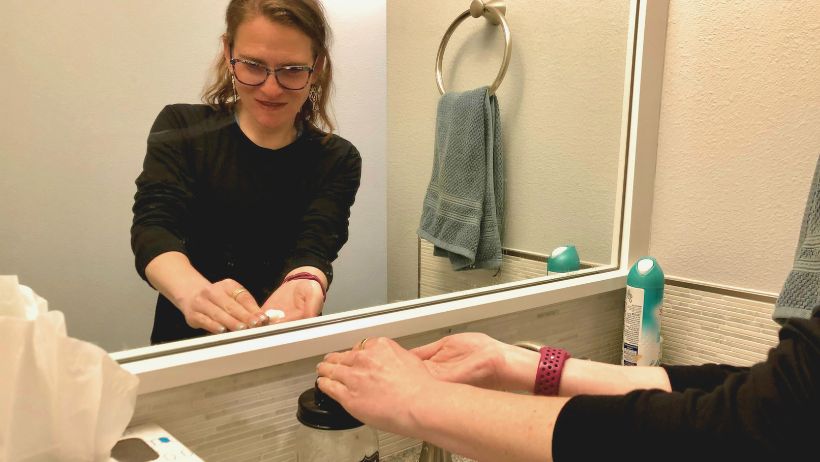How many of you have had the experience over the last four years of looking at someone who was coughing or sneezing (or had any signs at all of being under the weather) and pulled back just a little because “Oh no, Covid”? How many times did you have to excuse your seasonal allergies so that you weren’t shunned for “Covid-like symptoms?”

In a pre-Covid world, we might have assumed the best, if you can call a cold or allergies “the best.” In our post-Covid world, we have to do extra work to decipher what’s a cold, what’s the flu, what’s allergies, and what’s a potentially life-threatening virus we can spread to others. That’s not to say these other illnesses can’t be deadly or highly contagious, but simply that we have a whole new understanding of how to recognize and classify symptoms.
The truth is, our Torah has been guiding us on quarantining and recognizing ailments since the very beginning, and it kicks off in this week’s double Torah portion of Tazria-Metzora. The text of these parshiyot tell us of the laws for the purification of our homes and our bodies after disease or death has occurred. The laws remind us that our bodies and our places of residence need to be treated with the utmost respect. We also have the obligation to help one another maintain healthy lifestyles and support one another when we find ourselves with impurities.
It’s interesting, in our modern, post-Covid world, to read laws about how we purify ourselves (sanitizer, anyone?) and about quarantines well before modern medicine and our current support systems were in place. What it comes down to is the human connection we feel when we care for one another. Illness doesn’t mean that you’re somehow morally flawed; it means that we have work to do to bring healing. As we read this week’s double portion, we’re reminded just how important it is to be both aware of our own bodies and respectful enough of others to keep our fellow community members safe.



